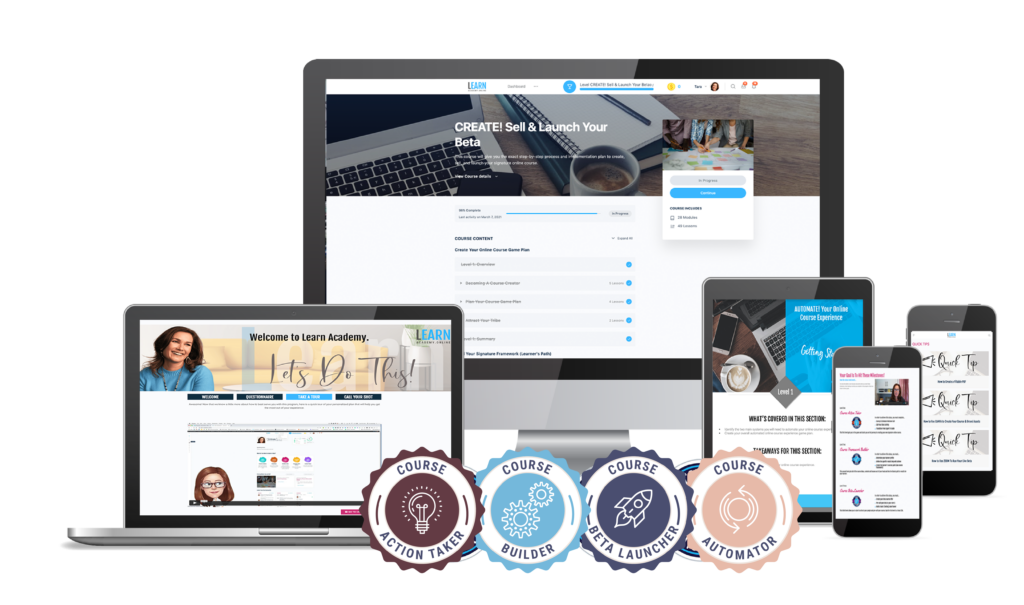Introduction
Want to scale your business with a small team?
It is possible and also a great way to keep growing with ease.
Growing a business often brings to mind visions of a large office filled with people buzzing around, each tackling a different task. In fact, this was the dream that I thought that I wanted when I built my agency.
However as I built my business, I realized that there was a better way.
A way that actually gives you the right foundation before you hire if you want but in today’s marketplace, you can build a successful, scalable business with a small team.
In fact, some of the most successful companies are those that have mastered the art of scaling with a lean team by leveraging automation, systems, and smart strategies.
The traditional approach of learning how to scale your business with a large team has its limitations — more people mean more complexity, more management, and more overhead.
But with just a few key team members and the right technology, you can create a streamlined, scalable business that operates efficiently and delivers results without adding unnecessary layers.
In this post, we’ll explore the benefits of learning how to scale your business with a small team and how to identify areas ripe for automation, and practical tips for scaling through systems instead of headcount.
Scale Your Business With a Small Team
If you’re a business owner considering growing your business, you may feel pressure to hire more people as your workload increases.
But while adding new employees seems like the obvious solution, a bigger team often comes with more complexity and overhead that doesn’t actually make you more profitable in the short term.
A larger team means more meetings, more management, and more chances for miscommunication. Plus, there’s the increased financial burden of salaries, benefits, and HR needs.
The good news? You can avoid these pitfalls and still scale effectively. The key is to create your one authority methodology that drives how you deliver your offer(s) and then leverage automation, systems, and smart hiring to support that path.
This approach allows you to scale your business with a small team to increase your impact and efficiency without sacrificing agility or profitability.
The Benefits of Keeping a Small Team
When you keep your team small even when you are in growth mode by focusing on automation and systems, you create a lean business model that can respond quickly to market changes, pivot easily, and maintain a personal touch with customers.
Here are some of the top benefits of learning how to scale your business with a small team:
Lower Overhead Costs
- Fewer salaries, less office space, and reduced administrative expenses all add up to significant cost savings, freeing up capital for strategic investments.
More Personal Touch
- A small team can focus on building deeper relationships with customers. Instead of managing a large staff, your efforts can be directed toward client experience and satisfaction.
Less Management Complexity
- With a smaller team, communication is clearer, and there’s less need for layers of management. This means more time to focus on growth strategies instead of team dynamics.
Easier to Maintain Culture and Vision
- When you have just a few key team members, it’s easier to ensure everyone shares the same values, understands the mission, and is committed to achieving the business’s goals.
Greater Agility and Faster Execution
- Small teams can move quickly. Fewer decision-makers mean less red tape, so you can implement changes faster and stay ahead of the competition.
How to Scale Your Business with a Small Team: Leveraging Automation and Systems
So, how do you scale with just a few people? The answer is to build a strong foundation of systems and automation that enable your team to accomplish more with less effort. This means looking at repetitive tasks, client onboarding, project management, and communication, and implementing tools that can handle these areas efficiently.
Here’s a step-by-step approach to scale your business with a small team:
1. Create your Signature Authority Strategy – Model and Methodology
Start by listing all the steps in your methodology and the exact actions that need to be completed in each one to move forward.
For each step, create a training video, tools and resources to help not only your team but your customers engage with that step in order to complete it. Identify the specific milestone that marks the completion.
2. Identify Repetitive Tasks and Create SOPs
Start by listing all the repetitive tasks that you or your team handle regularly in order to complete the step in the methodology. This could include sending follow-up emails, scheduling appointments, or generating invoices.
For each task, create a Standard Operating Procedure (SOP) that outlines exactly how to complete the task. Even if you don’t have the tools in place yet, having SOPs makes it easier to identify which tasks can be automated and which should remain manual.
3. Implement Automation Tools for Repetitive Processes
Once you’ve documented your processes, look for tools that can automate these tasks. There are a wealth of options available, from simple workflow tools to more complex customer relationship management (CRM) systems.
Some examples include:
- Email Automation: Use tools like ActiveCampaign to automate email sequences, nurture campaigns, and client communication.
- Scheduling: Implement tools like Calendly or Google Calendar to automate appointment scheduling and reduce back-and-forth emails.
- Project Management: Use platforms like ClickUp to keep projects on track and ensure every team member knows their role without constant check-ins.
4. Set Up Systems for Client Onboarding and Management
Client onboarding is one of the most crucial parts of your business. With the right systems in place, you can create a seamless, high-touch experience that doesn’t require a large team.
Here’s how:
Create a Step-by-Step Onboarding Process: Map out every step of your client onboarding process, from the first welcome email to the initial meeting and delivery of materials.
Automate the Initial Touchpoints: Use automation tools to send welcome emails, collect client information, and schedule calls.
Create Templates for Consistency: Use templates for proposals, contracts, and welcome materials. This ensures that every client receives the same high-quality experience.
5. Use CRM Tools to Maintain Relationships
A CRM (Customer Relationship Management) system is your best friend when running a lean team. With a good CRM, you can track every interaction with a client, set reminders for follow-ups, and ensure no one slips through the cracks.
The right CRM will help you:
- Segment your audience.
- Track the customer journey.
- Automate follow-ups and task management.
This allows your small team to provide a high level of service without getting overwhelmed.
Our favorite CRM is Activecampaign – it integrates with lots of core platforms (including our favorites).
6. Leverage AI and Chatbots for Customer Support
Customer support can eat up a huge chunk of your time if not managed effectively. This is where AI tools and chatbots can be a game-changer. While human touch is important, automation can handle initial inquiries, frequently asked questions, and simple tasks like appointment scheduling.
This frees up your team to focus on complex issues that truly require a personal touch.
Tips for Managing a Small Team While Scaling
Even with automation and systems in place, managing a small team can be challenging when you’re scaling rapidly. Here are some tips to ensure that your small team remains effective and engaged as your business grows:
1. Prioritize High-Impact Activities
With limited resources, focus on activities that have the most significant impact. Use the 80/20 rule: spend 80% of your time and resources on the 20% of tasks that drive the most results.
2. Encourage Cross-Training
With a small team, it’s crucial that every member can step into multiple roles if needed. Cross-training your team ensures that if someone is out or there’s an unexpected surge in work, you have coverage.
3. Keep Communication Clear and Concise
As your business scales, clear communication is key. Use project management tools to assign tasks, track progress, and avoid miscommunication. Regular check-ins can also help your team stay aligned with the company’s goals and priorities.
4. Use Metrics to Measure Efficiency and Impact
With a lean team, it’s essential to measure your efficiency. Use key performance indicators (KPIs) to track how well your systems and automations are working. This will help you identify bottlenecks and areas for improvement.
Final Thoughts: Small Teams, Big Results
Learning how to scale your business with a small team doesn’t have to mean hiring a large team. By identifying your signature approach to achieving a goal, you will have clarity and consistency. Then it is about leveraging automation and building smart systems, you can create a lean business model that delivers big results with just a few people. This approach keeps your overhead low, your operations agile, and your culture intact.
So, before you rush to hire more people, take a step back and evaluate where automation and systems can help. The right tools and strategies can help you build a business that scales efficiently — without the complexity of a massive team.
With the right blend of automation, systems, and a few dedicated team members, you can achieve the kind of growth that many businesses with large teams only dream about.
Want to learn whether Scaling or Building a Sellable Business is Right for You? Check out this blog post.
Want to learn how to Creating SOPs to Scale Your Business Efficiently?







